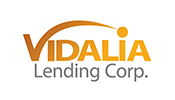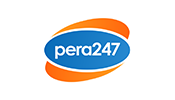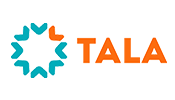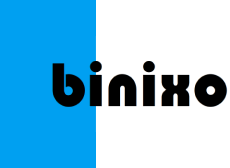Understanding Bad Credit
Bad credit refers to a low credit score or a poor credit history. When applying for loans, lenders typically assess your creditworthiness to determine the risk involved in lending money. Having bad credit can make it difficult to secure traditional loans, as lenders may view you as a high-risk borrower.
Several factors contribute to bad credit. Late or missed payments on credit cards, loans, or utility bills can negatively impact your credit score. High credit utilization, which is the percentage of available credit you’re using, can also have a detrimental effect on your creditworthiness. Other factors include bankruptcy, foreclosure, and having too many credit inquiries within a short period.
Common Reasons for Bad Credit
Unfortunately, many individuals find themselves facing bad credit due to various factors that impact their creditworthiness. Maintaining a healthy credit score is crucial for achieving financial stability and accessing various financial products in the Philippines.

Late Payments and Defaults
One of the most prevalent reasons for bad credit is consistently making late payments on loans, credit cards, or other financial obligations. When borrowers fail to meet their payment deadlines, it raises red flags for lenders and negatively impacts their credit score. Additionally, defaults on loans, wherein borrowers completely fail to repay the debt, can be severely detrimental to their creditworthiness.
To avoid late payments and defaults, it is essential for borrowers to create a budget and set up reminders for due dates. Moreover, establishing an emergency fund can help mitigate unexpected financial challenges that may otherwise lead to missed payments.
High Credit Card Utilization
Credit card utilization refers to the percentage of credit card limit that a borrower uses. High utilization, where individuals consistently use a significant portion of their credit limit, can negatively affect credit scores. Lenders perceive high utilization as a sign of financial instability and a higher risk of default.
To maintain a healthy credit score, individuals should aim to keep their credit card utilization below 30% of their available credit limit. Paying off credit card balances in full and on time each month can also contribute to improving credit scores.
Unpaid Debts and Collections
Unpaid debts, whether from loans or other financial obligations, can lead to collections actions by creditors. When debts are sent to collection agencies, it signals serious financial challenges and significantly impacts credit scores. Collection accounts can remain on credit reports for up to seven years, further affecting creditworthiness.
To avoid debts going into collections, borrowers should communicate with creditors proactively and seek solutions for repayment, such as negotiating payment plans or seeking debt consolidation options.
Bankruptcy and Legal Actions
Bankruptcy is a legal process where individuals or businesses declare their inability to repay debts. Filing for bankruptcy has severe consequences on credit scores, and it remains on credit reports for several years. Lenders are hesitant to extend credit to individuals with a bankruptcy history due to the perceived higher risk.
Legal actions, such as judgments or liens against borrowers for unpaid debts, also have adverse effects on credit scores. These legal actions indicate financial instability and can hinder access to credit.
Improving Your Credit Score
Fortunately, there are steps you can take to improve your credit score and increase your chances of getting approved for loans. Here are some tips:
- Pay bills on time: Consistently paying your bills, loans, and credit card balances on time is crucial for maintaining a good credit score. Set reminders or automate payments to avoid missing due dates.
- Reduce credit utilization: Aim to keep your credit utilization below 30%. Paying down debts and keeping balances low can help improve your credit score.
- Check your credit report: Regularly review your credit report to identify any errors or discrepancies. If you find any, report them to the credit bureau for correction.
- Build a positive credit history: If you have limited credit history, consider opening a secured credit card or becoming an authorized user on someone else’s credit card. Making timely payments and keeping balances low will gradually improve your credit score.
- Avoid new credit applications: Applying for multiple credit cards or loans within a short period can negatively impact your credit score. Only apply for credit when necessary and weigh the potential impact on your creditworthiness.
- Seek professional help if needed: If you’re overwhelmed by your financial situation, consider seeking assistance from a credit counseling agency. They can provide guidance on managing debt and improving your credit score.
While bad credit may hinder your ability to qualify for traditional loans, bad credit loans in the Philippines can provide an alternative solution. These loans are specifically designed for individuals with low credit scores and offer a lifeline for those in need of financial assistance.
Bad Credit Loans and Options
Having bad credit can make it challenging to secure traditional loans from banks and other financial institutions. However, individuals with a less-than-perfect credit history still have options to access financial assistance. In this article, we will explore bad credit loans and alternative financing options available to help those facing credit challenges.
Understanding Bad Credit Loans
Bad credit loans are specifically designed to cater to individuals with poor credit scores or limited credit history. These loans offer a lifeline to borrowers who may be rejected by traditional lenders due to their creditworthiness. Bad credit loans generally come with higher interest rates and may have stricter terms compared to regular loans, reflecting the higher risk perceived by lenders.
One of the primary benefits of bad credit loans is that they provide an opportunity for borrowers to rebuild their credit. By making timely repayments, borrowers can demonstrate responsible financial behavior and gradually improve their credit score.
Types of Loans Available for People with Bad Credit

- Payday Loans: Payday loans are short-term loans that provide quick access to cash, usually to be repaid on the borrower’s next payday. These loans are often accessible to individuals with bad credit, but they come with high interest rates and fees.
- Installment Loans: Installment loans allow borrowers to repay the loan amount in fixed monthly installments over a specified period. They provide more extended repayment terms compared to payday loans, making them more manageable for some borrowers.
- Secured Loans: Secured loans require borrowers to provide collateral, such as a vehicle or valuable asset, to secure the loan. This collateral reduces the risk for the lender, making it easier for individuals with bad credit to qualify for the loan.
- Credit Union Loans: Credit unions are member-owned financial institutions that may offer more flexible lending options for their members, including those with bad credit. They typically have lower interest rates compared to traditional banks.
Alternative Financing Options
- Peer-to-Peer (P2P) Lending: P2P lending platforms connect borrowers directly with individual investors willing to lend money. These platforms often consider factors beyond credit scores, allowing borrowers with bad credit to access loans based on their unique financial situations.
- Family and Friends: Borrowing from family or friends can be an informal alternative to traditional loans. However, it is essential to establish clear repayment terms to avoid potential strains on personal relationships.
- Online Lenders: Some online lenders specialize in providing loans to individuals with bad credit. These lenders may offer more flexible terms and quicker application processes.
- Credit Building Programs: Some organizations offer credit-building programs that allow individuals to establish or improve their credit by making small monthly payments that are reported to credit bureaus.
Conclusion
While bad credit can present challenges when seeking traditional loans, there are various options available for individuals facing credit difficulties. Bad credit loans and alternative financing options provide access to much-needed funds and an opportunity to rebuild credit with responsible financial behavior. Before choosing any financial product, it is crucial for borrowers to understand the terms and conditions and assess their ability to repay the loan to avoid further financial strain. Additionally, individuals can explore credit counseling and financial education resources to improve their overall financial well-being and work towards a brighter financial future.
















